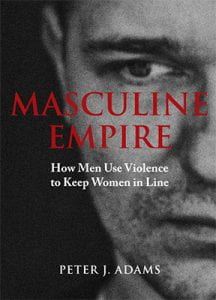I find it helpful to think of violence against women as involving similar processes to those operating when one country seeks to colonize another.
These may at first seem unrelated, but there are some interesting parallels.
When one nation sets out to colonize another nation, such as Britain did with India or Spain did with Mexico, the colonizing country typically embarks on their mission with a strong sense of their own superiority. They feel entitled to colonize because they bring with them finer knowledge, better administrative systems and a superior culture from which the colonized will ultimately benefit.
Besides a sense of superiority, two other features are critical to effective colonization: the imposition of force, usually in the form of a conquering army, and an organized administration that builds a system of laws to ensure ongoing dominance.
Now, when it comes to men’s colonization of women, the territory at stake is not an expansive and unified territory, rather it consists of a multitude of micro-territories, namely the billions of small units we call the family home.
Men believe they are entitled to colonize women in their homes because they have an enduring sense of their own superiority; men see the world in a more rational, organized and dispassionate way, and, accordingly, women would benefit from the order they are able to impose.
The imposition of force takes the form of a campaign of controlling tactics that typically include, regular put-downs, disorienting mind games, constant surveillance, and prolonged sessions of demeaning reprimands. Underpinning these lies the potential of physical and sexual violence which, while it may not always be present, its possibility is signaled more widely by the physical violence of other men. The long-term effect of these tactics enables men to gain progressive access to their partner’s mind and to eventually claim ownership of the way she experiences the world.
The organized nature of men’s violence can be observed in the way men talk with each other when women are absent. Male-to-male chat, derogatory humor and camaraderie constantly hint at and reinforce understandings of men as superior. Younger men become schooled into these ways of speaking and men with contrary views can find themselves quickly marginalized.
So, looking at this from above, violence against women cannot be reduced to the behavior of individual men. Far too many engage in such violence for it to be considered a product of aberrant psychological processes such as personality disorders, poor emotional control or accumulated rage. Men’s colonizing practices with women are connected to a wider enterprise engaged in by men to ensure their collective dominance of their homes.
We still face an enormous and a daunting task ahead. Vestiges of masculine empire are embedded deep within our minds, our social systems and our ways of speaking. Accordingly, violence against women remains commonplace in Aotearoa New Zealand as it does in many other nations, and while significant advances have occurred in the ways men speak about women in the public forums, this is still not matched in two key private locations; those where men talk with other men and the way they communicate with love-ones at home.
For a more detailed discussion on this topic, read my book: Masc uline Empire: How Men use Violence to Keep Women in Line
uline Empire: How Men use Violence to Keep Women in Line
Also see:
Towns, A., Adams, P. “I didn’t know if I was right or wrong or just bewildered.” Ambiguity, responsibility, and silencing women’s talk of men’s domestic violence. (Violence Against Women, 2015)
Adams, P., Towns, A., & Gavey, N. Dominance and entitlement: the rhetoric men use to discuss their violence towards women. (Discourse and Society, 1995)
Text & photo by: Peter J. Adams

Recent Comments